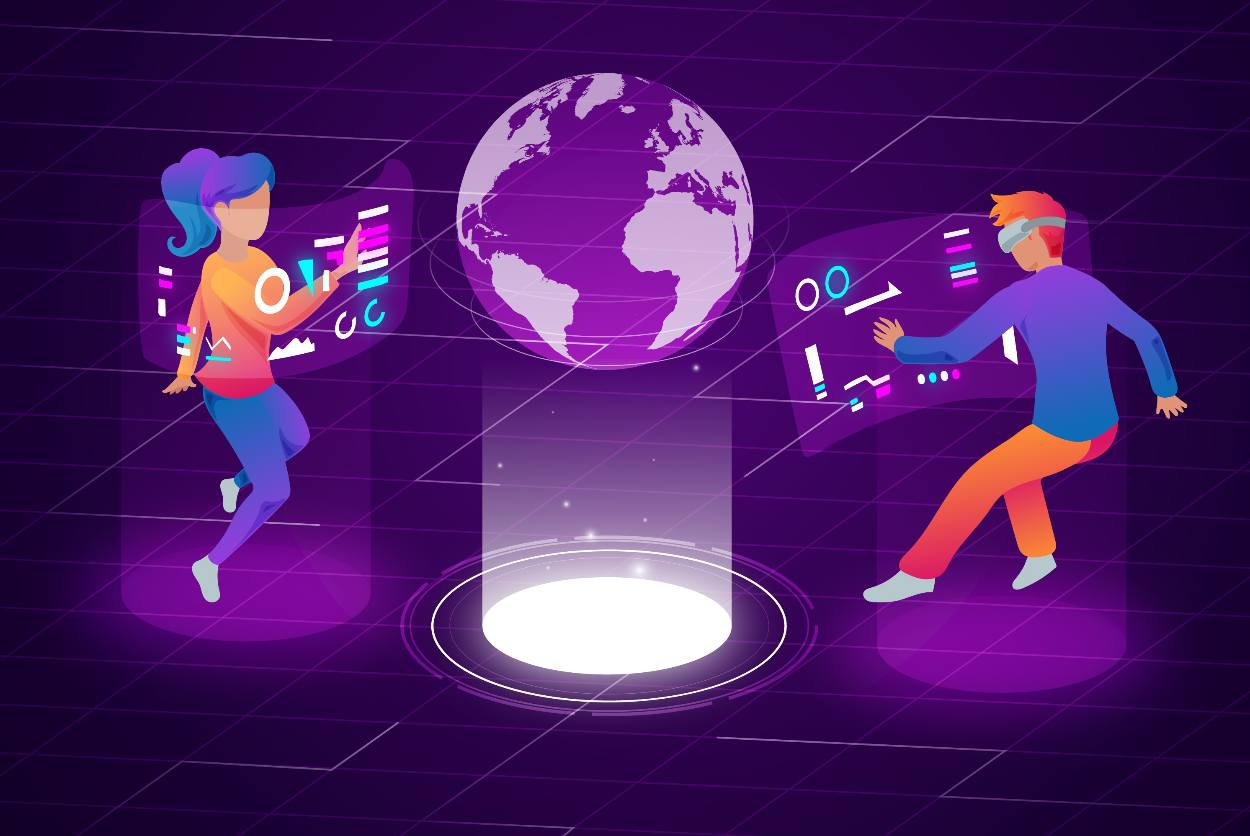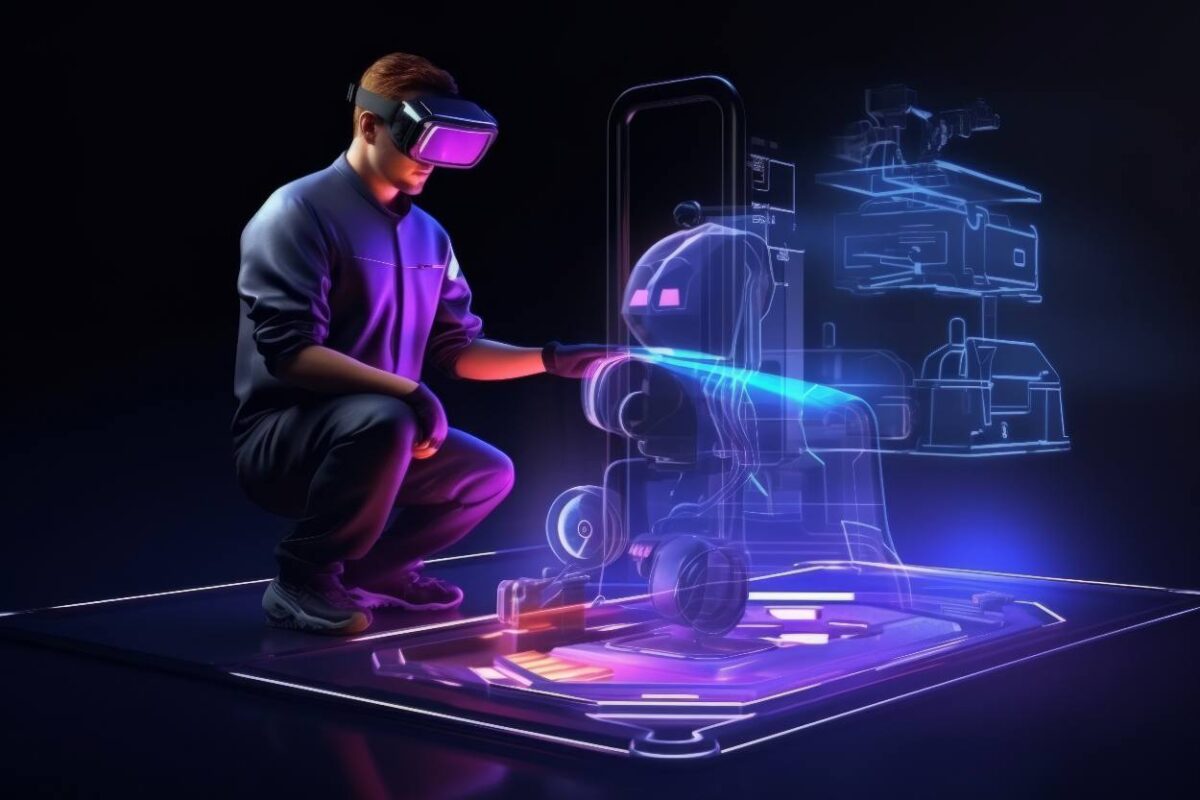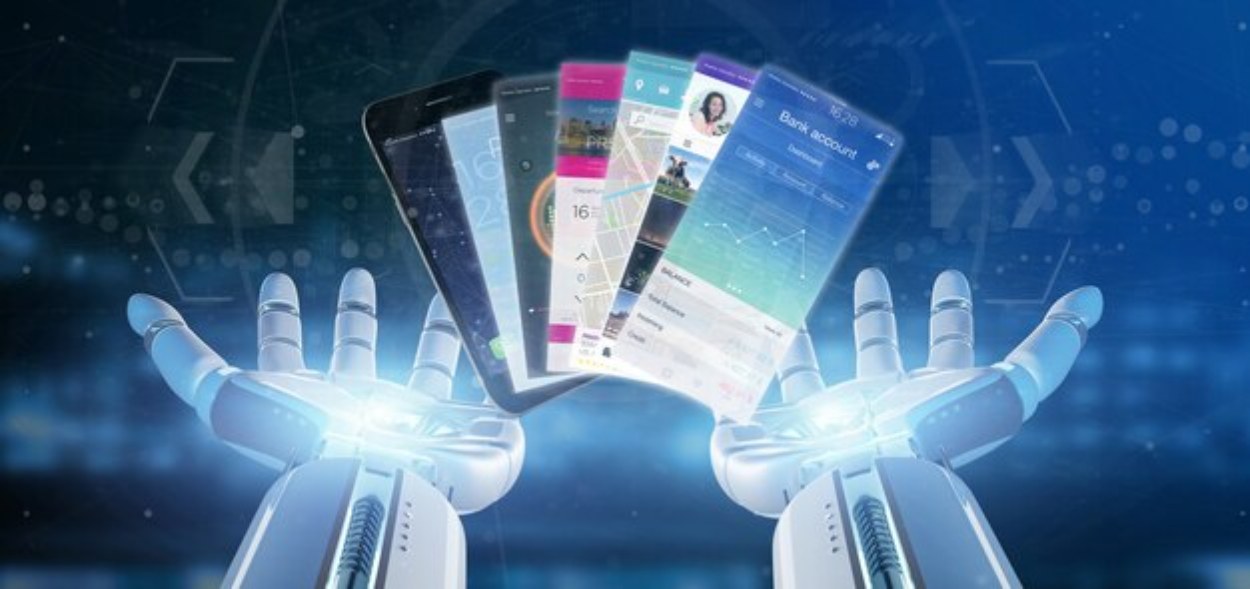Blog
Tech Giants Envision Future Beyond Smartphones

The world has been living in the smartphone era for over 15 years. From the first iPhone launch in 2007 to the foldable devices of today, smartphones have been the centrepiece of our digital lives. But now, tech giants envision a future beyond smartphones — and they’re already building it.
The idea isn’t about abandoning phones entirely but shifting toward new ways to interact with technology. Devices will become less about being held in your hand and more about blending into your environment, clothing, or body.
Why the Smartphone Era is Nearing Its Peak
For more than a decade, smartphone sales kept climbing every year. New models brought faster processors, better cameras, and bigger screens. But in recent years, that growth has slowed.
Signs of a Saturated Market
The truth is, most people who want a smartphone already have one. And the differences between yearly models are becoming less dramatic. Many users keep their devices for 3–5 years instead of upgrading yearly.
Key reasons for slowing growth include:
- Longer upgrade cycles – Phones are powerful enough to last longer.
- Price fatigue – Premium models now cost $1,000+, making upgrades less tempting.
- Minimal innovation – Features like better cameras and slightly larger screens aren’t enough to excite buyers.
Global Smartphone Growth Trends (2010–2025)

| Year | Global Shipments (Millions) | Growth Rate |
|---|---|---|
| 2010 | 296 | +74% |
| 2013 | 968 | +39% |
| 2016 | 1,473 | +6% |
| 2019 | 1,371 | -2% |
| 2022 | 1,207 | -6% |
| 2025* | 1,150 (projected) | -1% |
Projected figures based on IDC and Counterpoint Research data.
Changing User Behaviour
Apps, streaming, and social media still dominate usage, but people are shifting how they access them. Smart TVs, wearables, and voice assistants handle tasks that once required a phone.
You might check the weather on your smart speaker, start music on your smartwatch, or reply to messages through wireless earbuds. The tech giants envision a future beyond smartphones where you won’t even notice you’re using technology — it will just be part of your surroundings.
Next Big Thing in Consumer Tech
What will happen if smartphones aren’t the centre of our digital lives in the future? Tech giants are betting on a mix of devices and interfaces.
Wearable Devices and Smart Glasses
Smartwatches and fitness trackers have already gained popularity. But the next step could be smart glasses that replace your phone screen entirely. Imagine seeing navigation directions in your line of sight or receiving a message without looking down.
Meta, Apple, and Google are all testing prototypes in this space. Early devices like Google Glass didn’t succeed with consumers, but technology has advanced enough to make lightweight, stylish versions possible.
Voice-First Technology
Voice assistants like Siri, Alexa, and Google Assistant have been around for years, but they’re getting smarter and faster. In a post-smartphone world, they could act as your main interface — you talk to them, and they handle tasks instantly.
No tapping, no swiping — speak, and it’s done. This could especially benefit people who struggle with touchscreens or need hands-free control.
Brain-Computer Interfaces (BCIs)
It sounds like science fiction, but BCIs are already being tested. Elon Musk’s Neuralink and other research labs are developing systems that let people control devices with their thoughts.
At first, this tech will help people with disabilities. But in time, it could allow anyone to interact with technology faster than ever — no screen needed.
How Tech Giants are Preparing for the Post-Smartphone World
Major tech companies are quietly (and sometimes loudly) working on products that could replace or reduce our reliance on smartphones.
Apple’s Strategic Moves
Apple isn’t rushing to kill the iPhone — it’s still their biggest money-maker — but they are heavily investing in wearables and augmented reality.
- Apple Watch has become the best-selling smartwatch in the world.
- Apple Vision Pro hints at a mixed-reality future where apps float in your living room.
Google’s Long-Term Vision
Google sees AI and ambient computing as the future. They’re working on:
- Pixel Watch and Fitbit integration
- AI-powered assistants that understand context and anticipate needs
- Project Iris — rumoured AR glasses that could merge digital info with the real world
Microsoft’s Quiet Yet Powerful Innovations
While Microsoft left the phone market years ago, it’s focused on mixed reality and enterprise tech.
- HoloLens is used for industrial training, design, and remote collaboration.
- With cloud integration, users can work seamlessly from any device, freeing them from relying solely on a phone.
Tech Giants’ Post-Smartphone Projects
| Company | Key Focus Areas | Notable Products/Projects |
|---|---|---|
| Apple | Wearables, AR/MR | Apple Watch, Vision Pro |
| AI, AR, ambient computing | Pixel Watch, Project Iris | |
| Microsoft | Mixed reality, cloud integration | HoloLens, Azure cloud tools |
| Meta | Social VR/AR | Quest headsets, Horizon Worlds |
| Amazon | Voice AI, home automation | Alexa, Echo devices |
Role of AI in Shaping the Future
Artificial intelligence is the engine powering this shift.
AI as the New Operating System
Instead of opening apps manually, AI could manage your digital life automatically. It might book flights, order groceries, or remind you of deadlines without asking.
Predictive Personal Assistants
Imagine an AI that knows you’re leaving for work and automatically warms up your car, sends a message if you’re running late, and adjusts your calendar.
AI-Driven Personalization
Your devices could learn your habits so well that they tailor everything to you — from the news you see to the lighting in your room.
Opportunities and Challenges Beyond Smartphones
This future sounds exciting, but it’s not without challenges.
User Privacy and Security
Privacy risks grow when technology is always listening, seeing, or even reading brain signals. Companies must create strong protections and be transparent about data use.
Accessibility for All
The tech giants envision a future beyond smartphones that benefits everyone, not just those who can afford expensive gadgets. Affordable versions will be key to global adoption.
Economic and Job Market Shifts
If new devices replace smartphones, entire industries will change. Repair shops, app developers, and accessory makers may need to adapt quickly.
What This Means for Consumers and Businesses

The post-smartphone world could bring significant changes for both individuals and companies.
For Everyday Users
- More natural ways to use tech (voice, gestures, thought)
- Less screen time and more real-world interaction
- Devices that fit seamlessly into daily life
For Startups and Innovators
- New markets for wearable tech and AI services
- Opportunities in privacy protection and data ethics
- Growth in industries like AR, VR, and innovative environments
Consumer Benefits vs. Business Opportunities
| Category | Consumer Benefits | Business Opportunities |
|---|---|---|
| Wearables | Health tracking, hands-free use | New device sales, subscription services |
| AR/VR | Immersive experiences, real-time guidance | Training tools, entertainment, retail apps |
| AI Assistants | Time savings, personalization | AI software development, enterprise tools |
Final Thoughts
Smartphones won’t disappear overnight, but the signs are clear: tech giants envision a future beyond smartphones, and that future is closer than we think. From AR glasses to brain-computer interfaces, technology is moving toward devices and systems that are more personal, more integrated, and less visible.
For consumers, it means a world where tech adapts to them instead of vice versa. It’s a chance for businesses to create products and services that shape the next decade of innovation.
The shift will take years, but when it arrives, it might feel as normal as the smartphone once did — until we look back and realise how much has changed.
